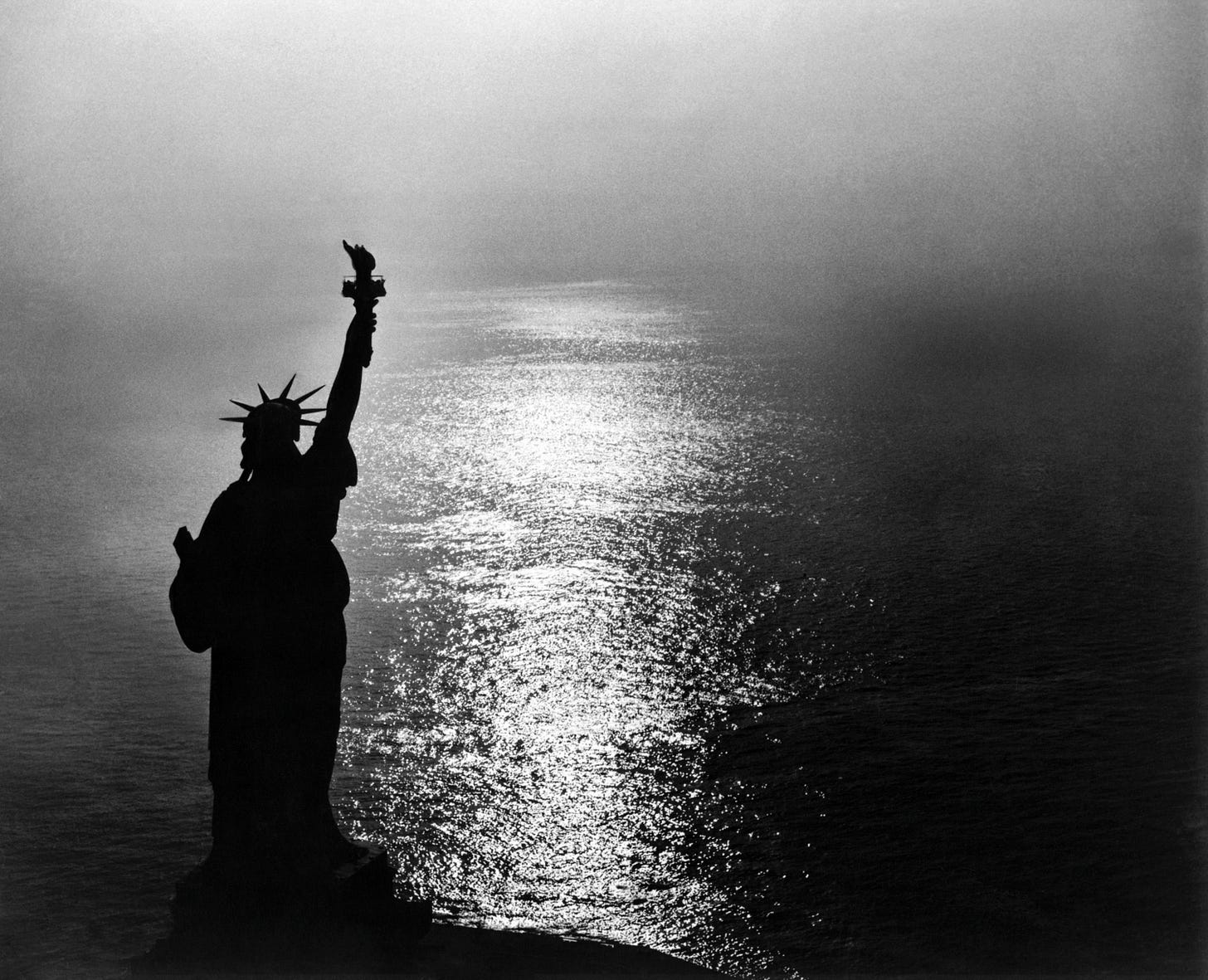I Believe in America
Happy Thanksgiving, to my adopted home.

“Don’t tell your friends we just had breakfast.”
That was my Dad. I was in first grade and he was dropping me off at school.
We lived in Iran, it was Ramadan, and everybody had to fast during the month. Technically, I didn’t have to fast, because of my age, but my parents did. And if somebody had found out that they had breakfast and weren’t fasting, they could get into trouble.
When I entered high school, I had to fast too. I wasn’t actually Muslim—my parents are atheists, and they’d raised a miniature atheist in me. But that didn’t matter. In Iran, you had to pretend you were Muslim, full-stop. This wasn’t a joke.
Before I’d been born, both of my parents had spent time in prison because of their politics. My Dad had been tortured. I didn’t want them to ever have to go back.
I grew up, went to college, and became, myself, involved in anti-government protests. Which got me kicked out of school. Realizing that I could never go back to college, I decided to leave.
First, I went to Hungary.
Despite the growing political authoritarianism in Hungary, it was more open than Iran. By a lot. I spent a couple of good years there before I realized that the Hungarian sense of nationhood is based on ethnic background. And since I wasn’t Hungarian by either blood or soil, I was never going to be an equal member of their society.
So I left, again. This time I arrived in Arizona, USA. And it was a crazy, almost unimaginably different world. The only people who cared that I didn’t grow up in the United States were the people curious about my story. Being an immigrant wasn’t a bug, it was a feature. Because being American had nothing to do with land or heritage. It was about nothing less than an idea. If you are American in your heart, then you can become an American.
It’s been five and a half years since I adopted America. Or she adopted me. I’m not sure which it is. Probably both. I don’t have American citizenship—yet—but I am American in my heart, and so people treat me like an American. Like we’re all confederates in love with the idea that makes our country special.
America isn’t perfect, obviously. Nothing is. There are problems. Three times I’ve been subjected to some xenophobia, and I remember each of these instances. But that’s the point: It’s happened so rarely that I can keep count. Three occasions!
And even though I’m not a citizen, I get to participate in politics with no fear of persecution.
Nobody minds that I don’t attend religious services. Well, that’s not true. I have a handful of friends who, out of love, want to drag me to church with them. But only because they want to save my soul—I have nothing but gratitude for the care they show for my wellbeing. No one is calling the Guidance Patrol.
I was treated like a third-class citizen in my country of birth.
In America, I’m treated as equal even before I’ve become an actual citizen.
Why? Because that’s the fundamental premise of our nationhood.
A while ago, a friend of mine asked why it is that I’m always happy and cheerful. I told him that it’s difficult not to be if you grew up in Iran and are lucky enough to live in America.
This Thanksgiving, I’m thankful for the same thing I’ve been thankful for for the last five years: America.
For her promise and her imperfections, for her goodness and her struggles.
I love my home. I love you, America.

